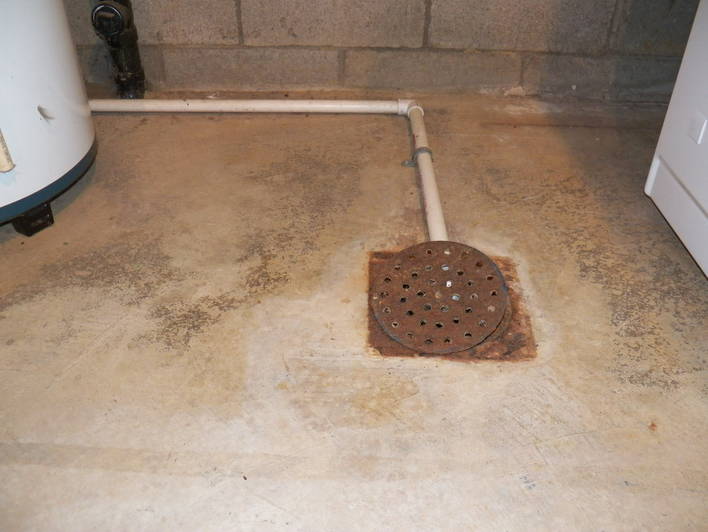I would like to install a sink in my basement but the only drain that is close to it is being used for the HVAC. Can I use this existing drain for the sink as well?
-
do you mean draining your sink onto the floor? or breaking up the concrete and tying into this drain line?– StevenCommented Nov 23, 2015 at 17:44
-
Draining it into the floor. Last resort would be tying into the line if that's possible.– ProgrammerCommented Nov 23, 2015 at 18:01
-
1It looks like there is a drain stack right next to your water heater, could you not tie in here?– StevenCommented Nov 23, 2015 at 18:03
-
2Before anyone can answer your question, you need to find out what your floor drain is connected to (sanitary sewer, storm sewer, etc.) as that will drastically impact what options you have. If you have schematics, you're in luck, if not, you may need to contact a plumber to have them come scope out the pipes. Typically you cannot put waste from a sink into a storm sewer. If it is purely water (no chance of soap, etc.) as in the case of air conditioner drain lines, then some localities have additional flexibility.– statueuphemismCommented Nov 24, 2015 at 14:51
-
2@Hooplehead24 If the floor drain connects to the sanitary sewer (not storm sewer), then there shouldn't be any issue draining into it with a 2" air gap per most plumbing codes, but each locality ultimately decides what is acceptable. If you want to tie into the line without an air gap, you would need to make sure proper venting is in place to prevent sewer gases from entering your home.– statueuphemismCommented Nov 24, 2015 at 20:23
4 Answers
You have to ask your local building inspectors. Some places allow grey water drainage into their overflow drain but most don't.
One of the problems you will have is if your sewer backs up it will back up into your sink drain. This isn't a huge deal but could get messy. Also you would be require to secure the PVC to the floor in some way.
I personally don't see an issue with it. There is no real downside other than it looking slightly ghetto. Most inspectors would just tell owner to set it up after they pass inspection - hence most cities won't recognize it as finished plumbing. Will it work though, sure as long as you are not sending a ton of mud or crap down your sink.
New construction single family houses, floor drains are connected to the sewer, individually vented when it’s not a emergency drain. Sink discharging into a floor drain no longer makes it an emergency drain so it should be vented. Mn third year plumber… not the best yet but I’m in school.
Floor drains often go to small sumps for diffusion into the soil, since they're just intended to handle occasional spills. For more volume, or for anything you wouldn't want your back-yard garden soaking up, you really want a proper drain connection.
(The pipe is for condensate, which is fairly clean and fairly small amounts.)
-
The drain is fairly close to the sewer system. If I find out it drains into that, is it ok to use it for a bar sink? Commented Nov 24, 2015 at 17:19
No. You cannot do that. It is against all rules of common sense, the national building codes of Canada and the US, and almost surely against the local plumbing ordinances you have. A sink needs to be connected to your sanitary sewer. The floor drain will be connected to your storm sewer. If you are in an older home, where they are shared, you could do it, but you will have to excavate the floor and make the connection sub-slab with rigid connections and not flexible hose or pipe. If you don't do it properly, you could end up having a flood in the basement, or having sewage or storm water or both coming into the basement and not having any way out.
-
2My floor drain connects to my sanitary sewer. Major metro upper midwest USA.– jqningCommented Dec 24, 2015 at 20:29

